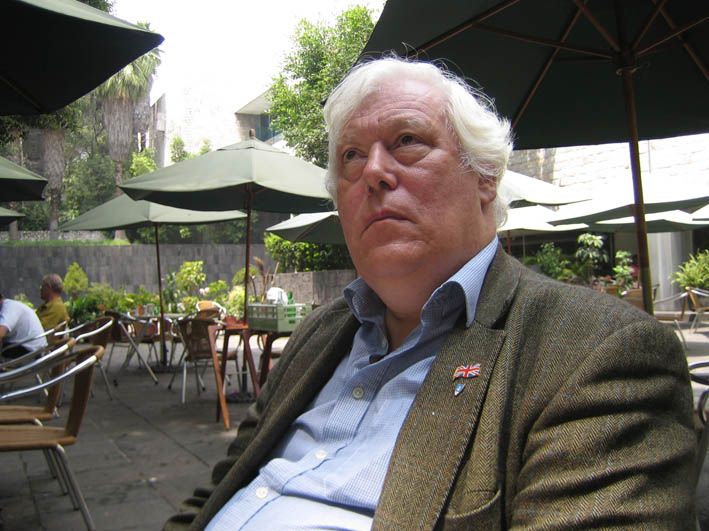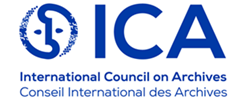George Boston (1942-2020)

It is with great sadness that we must inform you of the passing of George Boston, who made a significant contribution to the international audiovisual archiving field from the mid-1980s onwards, through his active involvement in IASA, UNESCO, and the collective work of the audiovisual archives associations.
George Boston started his professional carrier as an audio engineer at the BBC. In the 1980s he became studio manager of the BBC Open University Production Unit in Milton Keynes. Helen Harrison, librarian at the Open University and then Secretary General of IASA, invited him to IASA in 1985 where he joined its Technical Committee. He was strongly engaged in the organisation of the Joint Technical Symposium in Berlin 1987, a systematic cooperation of audiovisual archives associations to explore audiovisual preservation across all audiovisual carriers: audio, video, and film. This lead to the formation of the Technical Coordinating Committee (TCC), which systematically coordinated audiovisual preservation between the archive associations IASA, FIAF and FIAT, and UNESCO.
In 1992, representing IASA, George became engaged in the foundation of the Memory of the World Programme. He successfully argued that the programme should embrace all kinds of documents, not only documents of outstanding historical importance, but also include contemporary, as well as audiovisual and electronic documents.
George was with the Technical Sub-Committee (SCoT, now the Preservation Sub-Committee PSC) from its beginnings in 1994 and served as its Rapporteur until the Conference “The Memory of the Word in the Digital Age” in Vancouver 2012. He was also Member and Rapporteur for the International Advisory Committee (IAC) from 1995-2000 and of the Register Sub-Committee from 2001-2005.
During the 1990s, he chaired the TCC which took responsibility for the organisation of the Joint Technical Symposia 1990 (Ottawa), 1995 (London) and 2000 (Paris), which became the hallmark in audiovisual preservation since. George also worked as an editor for the proceedings of these events (he was still credited as one of the co-editors of the published papers of the 2016 JTS). He was a key figure in the support of cooperation between the audiovisual archives associations and UNESCO, which ultimately led to the foundation of CCAAA.
In the 1990s, he undertook a number of missions for UNESCO to advise various organizations on ways to improve their library and archive operations. These include trips to Bhutan (1992), Yemen (1992), India (1995), Kenya (1998) and the Bahamas and Jamaica (1999). He was also asked to examine and report on the condition of the AV archives at UNESCO headquarters.
For more than three decades George Boston contributed to the advancement of and international cooperation in audiovisual preservation. The audiovisual archival community and UNESCO have profited substantially from his continued and strong engagement. And those who worked close to him, have enjoyed his competent and prompt support, as well as his omnipresent sense of humour, which had made his and our lives often much easier.
Text adapted from a tribute to George Boston by the Memory of the World Preservation Sub-Committee.
15 December 2020
George Boston (1942-2020)

It is with great sadness that we must inform you of the passing of George Boston, who made a significant contribution to the international audiovisual archiving field from the mid-1980s onwards, through his active involvement in IASA, UNESCO, and the collective work of the audiovisual archives associations.
George Boston started his professional carrier as an audio engineer at the BBC. In the 1980s he became studio manager of the BBC Open University Production Unit in Milton Keynes. Helen Harrison, librarian at the Open University and then Secretary General of IASA, invited him to IASA in 1985 where he joined its Technical Committee. He was strongly engaged in the organisation of the Joint Technical Symposium in Berlin 1987, a systematic cooperation of audiovisual archives associations to explore audiovisual preservation across all audiovisual carriers: audio, video, and film. This lead to the formation of the Technical Coordinating Committee (TCC), which systematically coordinated audiovisual preservation between the archive associations IASA, FIAF and FIAT, and UNESCO.
In 1992, representing IASA, George became engaged in the foundation of the Memory of the World Programme. He successfully argued that the programme should embrace all kinds of documents, not only documents of outstanding historical importance, but also include contemporary, as well as audiovisual and electronic documents.
George was with the Technical Sub-Committee (SCoT, now the Preservation Sub-Committee PSC) from its beginnings in 1994 and served as its Rapporteur until the Conference “The Memory of the Word in the Digital Age” in Vancouver 2012. He was also Member and Rapporteur for the International Advisory Committee (IAC) from 1995-2000 and of the Register Sub-Committee from 2001-2005.
During the 1990s, he chaired the TCC which took responsibility for the organisation of the Joint Technical Symposia 1990 (Ottawa), 1995 (London) and 2000 (Paris), which became the hallmark in audiovisual preservation since. George also worked as an editor for the proceedings of these events (he was still credited as one of the co-editors of the published papers of the 2016 JTS). He was a key figure in the support of cooperation between the audiovisual archives associations and UNESCO, which ultimately led to the foundation of CCAAA.
In the 1990s, he undertook a number of missions for UNESCO to advise various organizations on ways to improve their library and archive operations. These include trips to Bhutan (1992), Yemen (1992), India (1995), Kenya (1998) and the Bahamas and Jamaica (1999). He was also asked to examine and report on the condition of the AV archives at UNESCO headquarters.
For more than three decades George Boston contributed to the advancement of and international cooperation in audiovisual preservation. The audiovisual archival community and UNESCO have profited substantially from his continued and strong engagement. And those who worked close to him, have enjoyed his competent and prompt support, as well as his omnipresent sense of humour, which had made his and our lives often much easier.
Text adapted from a tribute to George Boston by the Memory of the World Preservation Sub-Committee.
15 December 2020












